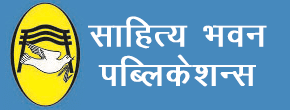इतिहास History Book For Semester V of Lucknow University, Lucknow
Paper-I: Freedom Struggle and Constitutional Development (1858 AD-1905 AD)
Unit-I
1. Government of India Act-1858; 2. Queens Proclamation; 3. India Council Act-1861 4. India Council Act-1892
Unit-II
1. Uprising of 1857—Causes and Consequences; 2. Lucknow: A Prominent Centre of 1857 Uprising; 3. 1857 Uprising: Suppression; 4. Prominent Personalities: Rani Laxmi Bai, Tatya Tope, Kunwar Singh, Nana Saheb.
Unit-III
1. Growth of Nationalism: Administrative Policies and Means of Communications; 2. Origin of All India National Congress; 3. Moderates: Ideology and Achievements; 4. Extremist: Ideology and Achievements.
Unit-IV
1. Partition of Bengal; 2. Swadeshi Movement; 3. Revolutionaries: Origin, Method, and Activities till 1905; 4. Eminent Personalities: A. O. Hume, Dada Bhai Naoroji, W. C. Banerjee, S. N. Banerjee, Gopal Krishna Gokhale, B. G. Tilak.
Paper-II: History of Europe (1919-1929)
Unit I
1. Aftermath of World War I—Paris Peace Conference; 2. Organization. Leaders and the problems before the conference; 3. Treaty of Versailles; 4. Other Peace Treaties and criticism of the Paris Peace Settlement.
Unit II
1. The League of Nations—Origin (14 Points of Wilson, objectives); 2. Membership, Organization; 3. Mandate System, the Minorities and the achievements of the League of Nations; 4. Disarmament, Washington Naval Conference, Draft of 1932-33.
Unit III (Internal Policies and condition of the nations)
1. Italy and Germany after 1919 up to 1929; 2. France after 1919 up to 1929; 3. Britain after 1919 up to 1929; 4. Russia after 1919 up to 1929.
Unit IV (International Economic Situation)
1. Socialism in Russia; 2. Reparation (Dawes and Young Plan); 3. Economic Nationalism; 4. Great Economic Depression in Europe and America.
Paper-III (a): Socio-Cultural and Economic History of India (1206 AD-1739 AD)
Unit-I
1. Prominent Historians of the Sultanate Period : (i) Ziauddin Barni; (ii) Amir Khusrau; (iii) Isami; (iv) Shams i-Siraj Afif. 2. Prominent Historians of the Mughal Period : (i) Abul Fazl; (ii) Badauni; (iii) Abdul Hamid Lahori; (iv) Khafi Khan.
Unit-II
1. Society in Medieval India; 2. Status of Women; 3. Bhakti Movement; 4. Sufi Movement. 5. Religious Policies of the Rulers : (i) Mohammad bin Tughlaq, Firoz Shah; (ii) Akbar, Aurangzeb.
Unit-III
1. Economic Policies of the Rulers : (i) Alauddin Khilji: Land Revenue Policy and Market Reforms; (ii) Mohammad bin Tughlaq: Land Revenue Policy; (iii) Land Revenue Revenue Reforms of Sher Shah and Akbar; 2. Taxation: Jaziya, Zakat, Khums; 3. Growth and Development of Trade from the 16th to 17th centuries.
Unit-IV
Cultural Development :
1. Growth of Painting; 2. Development of Music; 3. Major Monuments of the Sultanate Period; 4. Major Monuments of the Mughal Period














![यूरोप का इतिहास (1871 ई. से 1964 ई.) [History of Europe] [for Various Universities of Uttar Pradesh]](https://i0.wp.com/sahityabhawanpublications.com/wp-content/uploads/2017/10/2801-History-of-Europe.jpg?resize=245%2C300&ssl=1)


![समाजशास्त्र (Sociology) [for Mahatama Gandhi Kashi Vidhyapeeth]](https://i0.wp.com/sahityabhawanpublications.com/wp-content/uploads/2017/10/2543-Sociology_final.jpg?resize=245%2C300&ssl=1)




Reviews
There are no reviews yet.